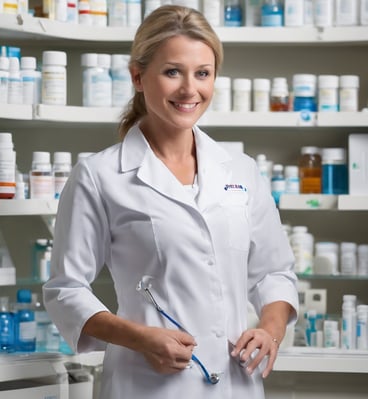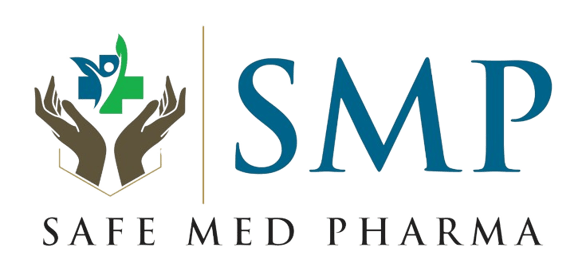The Silent Threat: Understanding Fake Medicines and Unethical Practices
GENRAL


Introduction
Fake medicines and unethical practices in the pharmaceutical industry pose a significant threat to public health and patient safety. The production and distribution of counterfeit drugs have become a global issue, affecting both developed and developing countries. In this blog post, we will delve into the world of fake medicines, discussing how to identify them, the dark web of unethical medicine trade, patient empowerment, the role of the pharmaceutical industry in ensuring product integrity, the importance of educating healthcare professionals, the risks associated with fake medicines, and how we can protect ourselves from this menace.
The Silent Threat: Fake Medicines
Fake medicines are medications that are deliberately mislabeled or contain substandard or falsified ingredients. They are designed to mimic genuine pharmaceutical products, deceiving patients and healthcare professionals. The consequences of consuming fake medicines can be severe, ranging from ineffective treatment to life-threatening complications.
How to Identify Fake Medicines
Identifying fake medicines can be challenging, as counterfeiters have become increasingly sophisticated. However, there are several warning signs to look out for:
Unusually low prices
Poor packaging quality
Mismatched or misspelled labels
Lack of proper markings or serial numbers
Expired or suspiciously long shelf life
Unusual taste, color, or texture
Unreliable or unauthorized sources
If you encounter any of these signs, it is crucial to consult a healthcare professional or report the suspicious medicine to the appropriate authorities.
The Dark Web of Unethical Medicine Trade
The internet has provided a platform for the illegal trade of fake medicines, with the dark web being a hotspot for these activities. Criminal networks operate in hidden corners of the internet, offering counterfeit drugs without prescriptions and often at lower prices. This underground market poses a significant challenge for law enforcement agencies and regulatory bodies.
Efforts to combat the dark web trade of fake medicines require collaboration between governments, law enforcement agencies, and technology companies. Increased surveillance, stricter regulations, and public awareness campaigns are essential in curbing this illicit trade.
Patient Empowerment
Empowering patients with knowledge and awareness is crucial in the fight against fake medicines. Patients should be educated about the risks associated with counterfeit drugs and the importance of obtaining medications from reliable sources. It is essential to encourage patients to consult healthcare professionals, ask questions, and report any suspicious medicines they come across.
The Role of the Pharmaceutical Industry: Ensuring Product Integrity
The pharmaceutical industry plays a vital role in ensuring the integrity of their products and protecting patients from fake medicines. Pharmaceutical companies must implement strict quality control measures throughout the manufacturing and distribution processes. This includes thorough testing of raw materials, secure supply chains, and effective serialization to track and trace medications.
Collaboration between pharmaceutical companies, regulatory agencies, and technology providers is crucial in developing innovative solutions to combat counterfeit drugs. The use of technologies such as blockchain and tamper-evident packaging can enhance product authentication and supply chain transparency.
Educating Healthcare Professionals: The Frontline Against Fake Medicine
Healthcare professionals are at the forefront of patient care and have a crucial role in identifying and preventing the use of fake medicines. Continuous education and training programs should be provided to healthcare professionals to enhance their knowledge and awareness of counterfeit drugs.
Healthcare professionals should be encouraged to report any suspicious medicines, participate in regulatory initiatives, and stay updated with the latest advancements in pharmaceutical authentication technologies. By equipping healthcare professionals with the necessary tools and knowledge, we can strengthen the defense against fake medicines.
Risks of Fake Medicines to Our Lives
The risks associated with fake medicines extend beyond ineffective treatment. Consuming counterfeit drugs can lead to severe health complications, drug resistance, and even death. Particularly vulnerable populations, such as children and the elderly, are at higher risk.
Fake medicines can also undermine trust in the healthcare system and pharmaceutical industry, leading to a decrease in patient compliance and overall public health outcomes. It is crucial to address this issue comprehensively to protect the well-being of individuals and society as a whole.
How Can We Stay Safe: The Importance of Genuine Medicines
Protecting ourselves from fake medicines starts with being vigilant and informed consumers. Here are some essential steps we can take:
Obtain medications from licensed and reputable pharmacies
Check for proper packaging, labels, and expiration dates
Consult healthcare professionals for prescriptions and advice
Report any suspicious medicines to regulatory authorities
Stay informed about the latest news and alerts regarding counterfeit drugs
Furthermore, governments and regulatory bodies must strengthen legislation and enforcement against counterfeit drugs. Public awareness campaigns should be conducted to educate the general population about the risks and consequences of fake medicines.
Conclusion
Fake medicines and unethical practices in the pharmaceutical industry pose a significant threat to public health. Identifying fake medicines, understanding the dark web trade, empowering patients, ensuring product integrity, educating healthcare professionals, and taking proactive measures are essential in combating this silent threat. By working together, we can protect ourselves and future generations from the dangers of counterfeit drugs and unethical practices.
